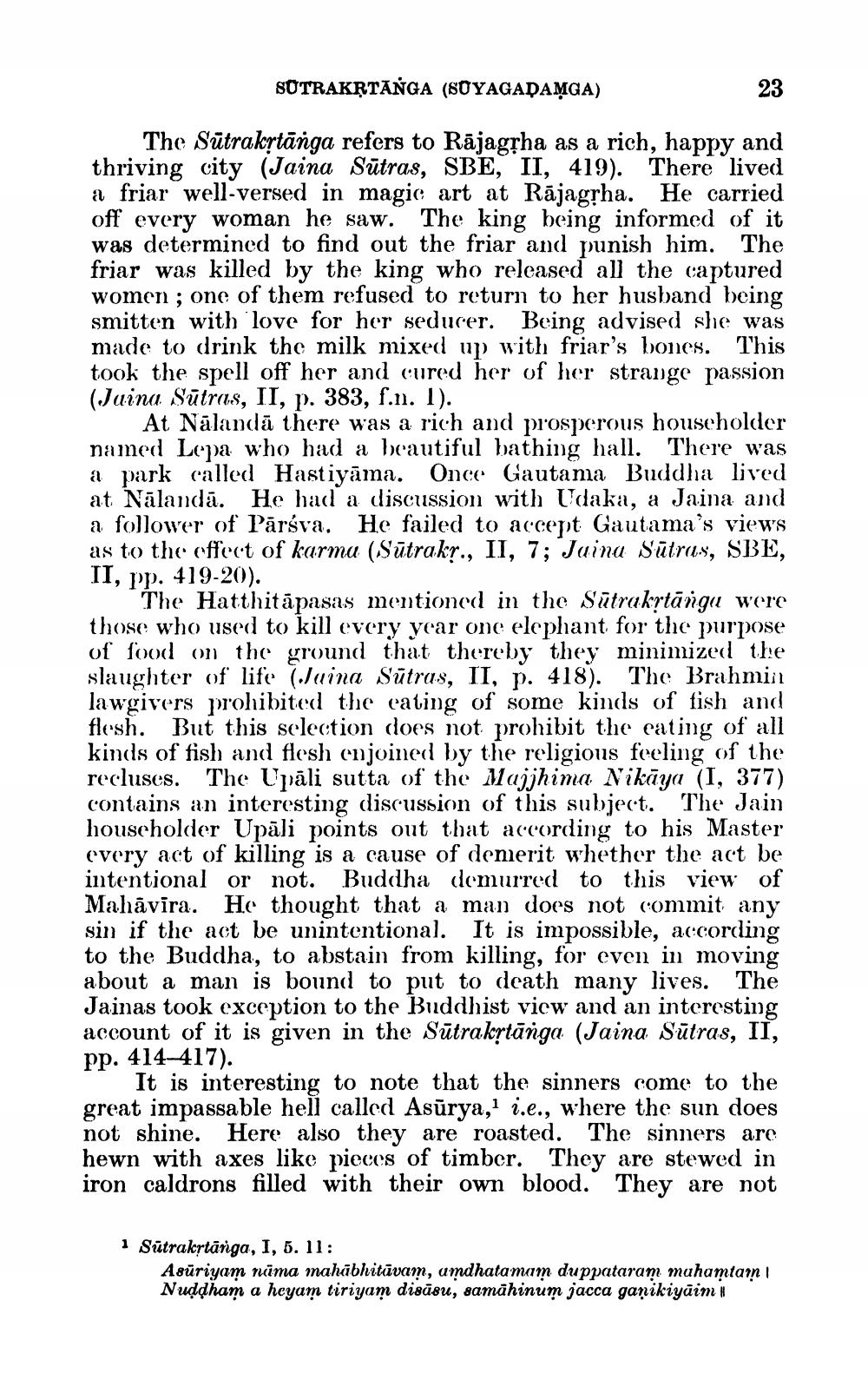________________
SOTRAKŞTANGA (SUYAGADAMGA)
23
1.
The Sūtrakytānga refers to RājagȚha as a rich, happy and thriving city (Jaina Sūtras, SBE, II, 419). There lived a friar well-versed in magic art at Rājagsha. He carried off every woman he saw. The king being informed of it was determined to find out the friar and punish him. The friar was killed by the king who released all the captured women; one of them refused to return to her husband being smitten with love for her seducer. Being advised she was made to drink the milk mixed up with friar's bones. This took the spell off her and cured her of her strange passion (Jaina. Sūtras, II, p. 383, f.n. 1).
At Nalandā there was a rich and prosperous householder named Lepa who had a beautiful bathing hall. There was a park called Hastiyāma. Once Gautama Buddha lived at Nālandā. He had a discussion with Udaka, a Jaina and a follower of Pārsva. He failed to accept Gautama's views as to the effect of karma (Sūtrakr., II, 7; Jaina Sūtras, SBE, II, pp. 419-20).
The Hatthitāpasas mentioned in the Sūtrakrtāngu were those who used to kill every year one elephant for the purpose of food on the ground that thereby they minimized the slaughter of life (Juina Sūtras, II, p. 418). The Brahmin lawgivers prohibited the eating of some kinds of fish and flesh. But this selection does not prohibit the eating of all kinds of fish and flesh enjoined by the religious feeling of the recluses. The Upāli sutta of the Majjhima Nikāya (I, 377) contains an interesting discussion of this subject. The Jain householder Upāli points out that according to his Master every act of killing is a cause of demerit whether the act be intentional or not. Buddha demurred to this view of Mahāvīra. He thought that a man does not commit any sin if the act be unintentional. It is impossible, according to the Buddha, to abstain from killing, for even in moving about a man is bound to put to death many lives. The Jainas took exception to the Buddhist vicw and an interesting account of it is given in the Sūtrakrtānga (Jaina Sūtras, II, pp. 414-417).
It is interesting to note that the sinners come to the great impassable hell called Asūrya, i.e., where the sun does not shine. Here also they are roasted. The sinners are hewn with axes like pieces of timber. They are stewed in iron caldrons filled with their own blood. They are not
1 Sūtrakrtānga, 1, 5.11:
Asüriyam nama mahābhitāvam, amdhatamam duppataram muhamtarni Nuddham a heyam tiriyam disāsu, samahinum jacca gañikiyāim x




